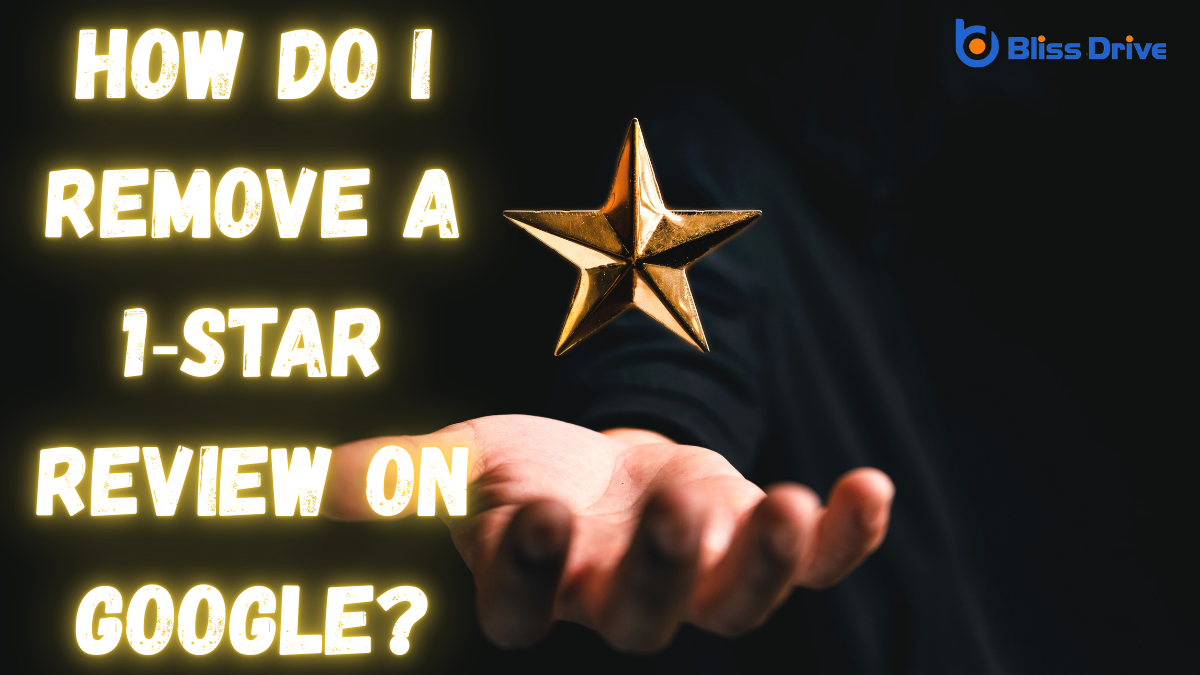Digital Marketing Services
Learn More About Us

I've had my fair share of dealing with negative reviews, especially those pesky 1-star ones on Google. It's tempting to want to remove them immediately, but it's not always straightforward. Before taking any action, it's essential to understand the ins and outs of Google's review policies. Could there be a way to address it effectively and possibly even turn things around? Let's explore some strategies together.
Before you decide on any action, it’s essential to assess the validity of the 1-star review. I know it’s tempting to react immediately, but take a moment to dig deeper.
First, ask yourself if the review reflects a genuine experience. Does it mention specifics about your service or product? Vague or irrelevant comments might indicate spamUnsolicited and irrelevant emails sent to a large number of recipients. or a competitor's attempt to tarnish your reputation.
Next, consider if the customer reached out previously with concerns. Cross-reference the review with your records. Sometimes, misunderstandings arise, and clarifying them can turn a negative review around.
Finally, be honest with yourself. If the review highlights a real issue, acknowledging it and planning improvements can be a stepping stone to better customer relations.

To tackle a 1-star review effectively, I first make sure I’m familiar with Google’s review policies.
It’s essential to identify prohibited content, understand spam guidelines, and recognize conflicts of interest.
Why is it essential to know Google’s review policies when dealing with a 1-star review? Understanding these guidelines helps identify prohibited content, which can be grounds for removal.
I’ve learned that not all negative reviews follow the rules. By knowing what counts as prohibited, you can take informed action.
Here’s what to watch for:
Maneuvering Google’s spam guidelines is essential when dealing with questionable reviews. I always start by familiarizing myself with Google’s review policies, which are designed to maintain authenticity and trust.
Spam reviews can be misleading, often created by bots or competitors to manipulate a business’s reputation. Google doesn’t allow fake content, and understanding this helps me spot reviews that violate the guidelines.
I look for signs like repetitive content, unusually frequent reviews from one account, or content that’s irrelevant to the business. When I suspect spam, I gather evidence and report it to Google.
It’s vital to be thorough and precise in identifying these issues since Google’s enforcement relies on clear violations of its policies. Protecting my business’s reputation starts with understanding these guidelines.
Spotting spam reviews is just one aspect of maintaining a trustworthy online reputation.
Recognizing conflicts of interest in reviews is equally vital. When I come across a questionable review, I ask myself if there’s a hidden agenda. Google’s policies address conflicts of interest to guarantee honest feedback.
Here’s what to look for:
Although receiving a 1-star review can be disheartening, engaging with the reviewer constructively can turn the situation around.
First, take a deep breath and read the review carefully. Try to understand the root of their dissatisfaction.
Once you’ve grasped their perspective, respond promptly and politely. Acknowledge their concerns without being defensive. Express genuine interest in resolving their issue and offerThe specific product or service being promoted by affiliates. a solution if possible.
For instance, you might invite them to discuss the matter further offline. This shows you’re committed to their satisfaction and open to improvement.
When you've tried engaging with the reviewer but the 1-star review seems unjust or violates Google's guidelines, it's time to contemplate reporting it.
I know it feels intimidating, but Google provides a way to flag inappropriate reviews. You'll need to determine if the review breaches specific policies.
Consider these points:
If the review matches any of these, navigate to your Google Business account, find the review, and click “Flag as inappropriate.”
This alerts Google for further evaluation.

If you think a review crosses into defamation, it's essential to understand the basics of defamation laws.
Evaluating whether legal action is viable can be complex, so I recommend contacting a legal professional for guidance. They can help you assess the situation and decide on the best course of action.
Maneuvering the complexities of defamation laws can feel overwhelming, but it’s important to understand them if you're dealing with a potentially defamatory Google review. Not every negative review is defamatory, so knowing the legal framework is significant.
Defamation involves false statements that harm someone’s reputation. While I’m no legal expert, here's a simplified breakdown to guide you:
Understanding these elements can assist in gauging the seriousness of the issue.
As you consider taking legal action against a potentially defamatory Google review, evaluating the legal viability of your claim becomes essential.
You'll want to understand whether the review crosses the line from opinion to defamation, which typically involves false statements presented as facts that harm your reputation. Not every unfavorable review meets this criterion, so it's important to assess if the content is truly defamatory or just a harsh critique.
Remember, truth and opinion, even if negative, usually aren't considered defamation. Consider reviewing the review's specific language. Are there clear inaccuracies or misleading statements?
Is there evidence of malicious intent? Identifying these elements can help clarify whether legal action is justified, ensuring you're well-prepared before proceeding further.
When facing a potentially defamatory review on Google, reaching out to legal professionals can be an essential step in protecting your reputation.
I know how frustrating and damaging false information can be, and sometimes legal advice is necessary.
Legal professionals can help you:
Taking these steps guarantees you handle the situation correctly and with the right expertise.
Don't let defamatory reviews harm your hard-earned reputation.
While a 1-star review can sting, it’s vital to focus on encouraging positive reviews from satisfied customers to boost your overall rating.
First, I make certain my customers have a fantastic experience by consistently delivering excellent service or products. After a successful interaction, I simply ask them to share their positive experiences online. I find that most people are happy to help if I've met or exceeded their expectations.
Additionally, I make it easy for them by providing a direct link to my Google review page. It’s important to be genuine and express how much their feedback means to me.
I also respond to all reviews, showing gratitude and addressing any concerns. This approach not only enhances my reputation but fosters stronger customer relationships.
If you've received a 1-star review on Google, don't panic. First, check if it violates Google's policies and flag it if necessary. Engage with the reviewer to address their concerns, showing your commitment to customer satisfaction. If the review is defamatory, consult a legal expert. Encouraging positive reviews from satisfied customers can also help improve your overall rating. Remember, addressing reviews constructively can enhance your business's online reputation and customer trust.
